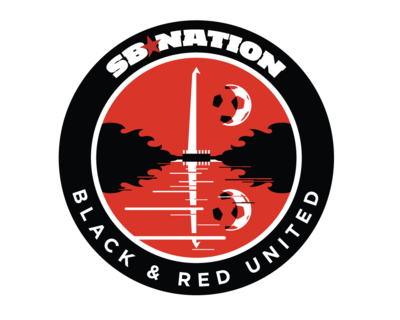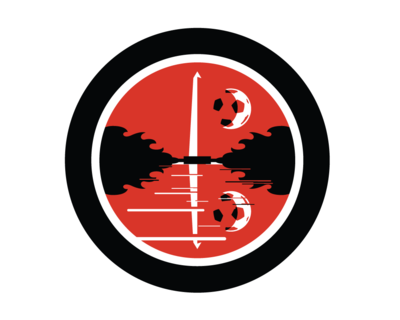Reviewing Dave Kasper's 2015 performance as D.C. United's GM involves making some judgment calls. Figuring out exactly how much say any GM has is difficult without being in the building every day. It's safe to say that Kasper and Ben Olsen have developed a collaborative relationship when it comes to signings, but how much so? When Kasper goes scouting abroad, is he working with a list of specifics Olsen gave him, or is that sort of thing purely under his control? And that's just one relationship involved, since GMs answer to ownership as well.
As a result, it can be difficult to unravel where Kasper's responsibility for United begins and where it ends. However, since the main thing we're concerned with here is on-field performance, let's say for the sake of argument that analyzing United's player acquisitions and departures is probably as close as we're going to get to an accurate judgment of how Kasper did in 2015.
Though I'm a fan of non-linear storytelling, for the sake of clarity we'll start at the beginning and end at the, uh, end. Markus Halsti - the club's biggest signing of 2015 on paper - was also the first to be completed. From an economic perspective, Halsti looks like a good signing: A current Finnish international coming off of a season where he made the Swedish top flight's Best XI for a club that had qualified for the UEFA Champions League was joining United on a free transfer, after all.
With that resume, his hefty salary ($275,000 base, $336,833 guaranteed) makes sense. Unfortunately, a knee injury sustained during the final leg of training camp reduced his impact. Halsti played 77 minutes on February 15th, but didn't even appear on the bench until May 13's 2-1 win over Orlando City. He'd make his debut four days later against Philadelphia, and then alternate starts with appearances on the bench for weeks due to a schedule that saw United play weekend and mid-week games for six out of eight weeks from mid-May to early July.
In the end, that lost time meant Halsti had a hard time catching up to Arnaud as a partner to Perry Kitchen. United's double pivot requires quite a bit of understanding to work, and eventually that means playing games as a pair. However, it also must be said that Halsti appears to be more like Kitchen than Arnaud in terms of where he wants to play. There is a bit of redundancy at play here. Halsti is undoubtedly a good player, but is he the right player for United? That remains to be seen.
So if the Halsti move ended up being a bit underwhelming (as well as arguably inconclusive), what do we make of Jairo Arrieta? The Costa Rican veteran was acquired by trading an international roster spot - something United might not have used anyway - to Orlando City through 2016. With Fabian Espindola suspended, United clearly needed to add another experienced striker to start the season off well.
Arrieta ended up being United's second leading scorer across all competitions with 8 goals (5 in MLS, 1 in each edition of the CCL, and 1 in the Open Cup), which is a pretty good return for a guy acquired for a song and expected to be the club's third forward. However, 6 of those goals were scored by the end of June 3rd's 3-1 win over Chicago. Arrieta was later made redundant by the return to form of Chris Pontius and the acquisition of Alvaro Saborio, which we'll get to in a bit. In the end, Arrieta got the job done but can probably be replaced for someone either younger, faster, or cheaper.
On draft day, United added Miguel Aguilar with the 17th overall selection and Dan Metzger with the 42nd pick. Aguilar looks quite promising, but unlike recent 1st round picks he was still a bit raw. That saw him only play 528 minutes in MLS, but he did end up being very successful in the Champions League. Metzger, on the other hand, didn't fit the formation and in all likelihood was unable to convince the club that he was going to do more than Jared Jeffrey. That's not a major knock on Kasper in a world where 2nd round picks are worth the equivalent of a 4th round pick from a few years ago.
United also added two undrafted players in Travis Worra and Luke Mishu. In both cases, the players look to be average or even a hair above average for what they are. Worra is the third-string goalkeeper, and Mishu is the fourth fullback on the roster, so they naturally don't see a lot of playing time. Still, both players appear to be evidence that United is still doing a better job of scouring the college ranks than most MLS clubs.
Michael Farfan arrived next, and United used their spot (#12 at the time) in the allocation ranking to grab him. The 12th spot in the allocation ranks is usually not worth anything; most of the time, you'd have to trade someone ahead of you something of value to move up. Farfan ended up injured and didn't see all that much time, but that's something under Olsen's purview. In my book at least, this was a good move from the GM's end of things.
Kasper's best work of the season had nothing to do with a new player. Bill Hamid signed a contract extension in the summer, keeping the Black-and-Red's best player here while giving him a deserved raise. Hamid has eyes on playing in Europe, and could have left on a free transfer this winter. Now, it looks like he'll be around for at least one more season, and if (OK, when) he does leave United should receive a huge transfer fee to re-invest. Given the club's financial situation at RFK Stadium, that's a major plus on and off the field.
Kasper's next move was to bring in Facundo Coria. Coria got some playing time early, and looked to be a skillful, creative player on a team that needed more of that kind of thing. Unfortunately, a rash decision against FC Dallas lead directly to a stoppage-time game winner for the Hoops, and Coria was scarcely heard from again. Fortunately, he was acquired at no cost and offered a minimum salary; the deal didn't work out, but United didn't really lose anything in the process.
As the season wore on, United opted to trade Luis Silva to Real Salt Lake for Alvaro Saborio. There was some understandable skepticism about this deal, and on multiple fronts. Silva is much younger than Saborio, and is an inventive X-factor sort of player; Saborio is a veteran target man. For fans that wanted United to play the ball on the ground more, this wasn't exactly a celebrated move.
However, Silva was going to be out of contract and United reached a point where they knew they weren't going to be able to offer him a deal that would convince him to stay here. Trading him for Saborio got the club something rather than nothing, and while Saborio struggled as a starter he has had a goal-scoring impact off the bench. Silva, meanwhile, apparently did opt for Mexico after all.
In other words, United got a useful substitute in exchange for a player who was on his way out the door. Getting something for (close to) nothing is always a good move for a GM. Saborio has been signed to a restructured contract, and while the price tag there may end up being a bit too much for my tastes he's still a player that can change games and contribute in 2016.
I've left Michael Seaton towards the end because his situation involved more than one move. Finding him a place to play on loan that would demand more of him than the USL was smart on paper, but Swedish side Örebro SK turned out to be a bad choice. Seaton made 4 appearances early in the season before apparently falling out of favor as Örebro found themselves in a fight against relegation. What was supposed to be a full season loan ended up lasting barely over two months as United called Seaton home.
In the end, Seaton wasn't given time here and at least on social media seemed unhappy with the situation. In the end, United opted to trade the Homegrown striker to Portland for TAM and an international roster spot that revert back to United in 9 days. It's not an ideal outcome for a promising attacking player from the club's academy, to be sure. Without knowing precisely how much Seaton was agitating for playing time or a transfer, it's hard to look at this situation as anything but unfortunate. It might not be a major mistake - we'll see how Seaton develops playing for Timbers 2 and/or PTFC's first team - but all the same it's not the best look for anyone involved.
Finally, Kasper's most recent moves appear to be a clear win when taken as a pair. Chris Pontius will be missed, obviously, but with his injury history there was no way United could afford to keep him at a salary that he would have accepted. Moving him to Philadelphia for both TAM and regular allocation money made room for the acquisition of Lamar Neagle, who is very similar to Pontius but has a history of avoiding injury and costs about half as much against the salary cap. That's just good business.
Overall, Kasper's roster construction is pragmatic but effective. He has put together solid, savvy group of players that isn't short in any one position (though there were times where one more injury at fullback or forward would have put United in a very bad spot). While the squad's ceiling is short of being a contender, the floor is high enough that a spot in the playoffs is a completely reasonable demand.
Kasper remains one of the best GMs in MLS when it comes to moves within the league. His worst trades still end up being win-win, or are unsexy but necessary moves. United didn't have a great position of strength at this year's draft and still came away with a promising player in Aguilar. The final set of trades involving Pontius and Neagle was a very smart move for the Black-and-Red.
Internationally, the returns are less positive. Halsti insists he's a better player than we saw in 2015, and he certainly wasn't an outright flop. However, he doesn't seem to be an ideal fit for the team as it was constructed this season. Even at his best, I think we'd see some issues with him and Kitchen as a pairing. Coria, meanwhile, was an extremely low-risk move, but again it was one that didn't work out. Hopefully with MLS's new allocation of TAM in play for 2016, Kasper can land more of a sure thing from abroad this winter. That pretty much has to happen if United is going to take the step up to become a true contender.
All in all I think Kasper has done a solid job as GM, particularly when you factor in United's financial limitations. He certainly hasn't been perfect, but more often than not he's made moves that give the club an opportunity to win games. Now it's time for you to have your say:






